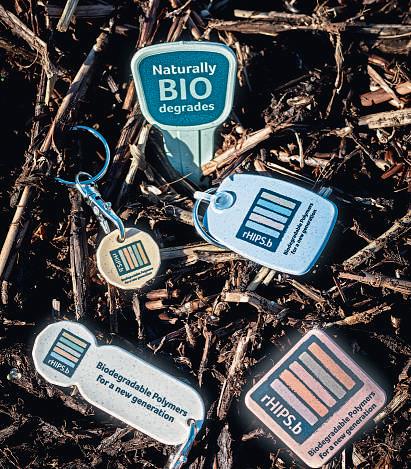
4 minute read
Where next for SUSTAINABILITY?
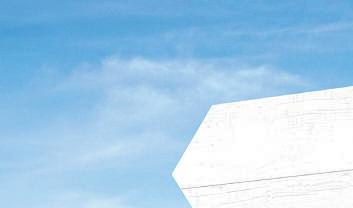
The promotional merchandise industryisembracing sustainability, changing theway it worksand the work it makes.
This is whythe BPMA took thestepof launching theStepForward Pledge at this year’s Merchandise WorldshowinCoventry.
The gathering of theindustryhas long been aplace forthe sector to network and debate, and to showthe worldits changing nature. In recent years, this hasincreasingly been about demonstrating themove from thoughtless giveaway culturetoamore considered and considerateapproach to howand what merchandise is used, and thetype of products that areonoffer
Eco WorldatMerchandise Worldhas become aplatformfor thegrowingnumber of more sustainable options forend users. This year,evenmoreexhibitorsfocused on environmentally friendly products, and this lookstobeanongoing trend.



Research by Accenturehas shownthat consumer concernabout sustainabilityis nowfirmlyembedded and they take adim view of brands that have alax approach to their stewardship of theearthand its resources.
Moreconsumers (64%) areconcerned about theenvironment than they areabout their ownfinancialsituation (54%), their health(40%),orthe health of others (47%).
The study lookedatshopping habits and sustainabilityafter thepandemic, and found that compared to two years ago,almost a thirdweremorelikely to shop in line with their personal values and ethics.
Another survey, by Deloittefound that as consumers have takenincreasing steps to be moresustainable in their ownlives,they have also become moresocially conscious when purchasing clothing and footwear forexample, reducing thenumber of new items they buy,mending clothes, buying second hand, and choosing brands based on their sustainabilityand ethical practices.
Increasing consumer interest in sustainabilityisalso being reflected in purchases of everyday household items, withconsumers morelikely to avoid singleuse plastic and to choose brands that have environmentally sustainable and more ethical practices and values.
According to a2022GlobalSustainability Survey,56% of UK consumers rank sustainabilityasatop five value driver.

WHERE NEXT?
Manymerchandise professionals will be awareofthese shifting sands, and some companies arealready taking laudable steps to be moresustainable. However, the journey is long and evolving, and some businesses areinthe early stages of change
This is whythe BPMA has launched its StepForward Pledge. Whether youare just starting your journey,oryou have been working on your sustainabilityfor awhile, members can register and take thefirst step forwardand support thePledge.
Environmental, Social andGovernance (ESG) targetsare crucialindelivering longterm benefits and business growth and theBPMAStepForward Pledge supports members in managing its risks and opportunities, embedding sustainability within their products, operations and in their communities.
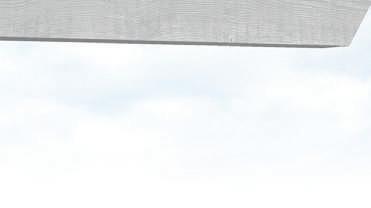
As part of theprocess Product Media asked BPMA members what they aredoing to become moresustainable. And the heartening response seems to be ‘quitea lot’
From theindustryfeedbackwehave receivedfrommerchandise professionals, thereislittledoubt that thesector is taking its responsibilities seriously and that the conversation around sustainabilityhas become morematureand meaningful, taking in amoreholistic approach to the subject overall.
In thefollowing pages we have tried to outline some of thebestpractices we have found as well as commentaryonhow the sector is dealing withthe myriad demands of sustainability.
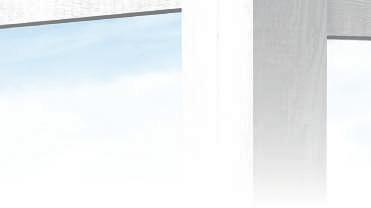


As youshould expect from suchas sprawling subject and from thelarge number of players that make up our industry, it cannot claim to be completely exhaustive,but it does give agood flavour of what’shappening in our sector
Foramoregranular pictureyou should ask your partners what they aredoing to become moresustainable. The answers maysurprise you.
Amaturing Conversation
Manufacturer CHX claims to be theonly supplier to have only ever used 100% recycled plastic formorethan20years. That position is paying off nowasthe companyisgetting ahuge amount of interest and demand to knowwhatelseit’s doing, says CHX sales director Max Rutland.
Once upon a time, its recycled usage would have been enough to get credit forbeing ‘eco’, he admits but nowthe conversation has matured.
In termsofphysical and material actions, thecompanyhas done anumber of things to beevenmore sustainable. It has installed LEDlighting throughout thefactoryand packaging for orders is now100% recycled cardboard cartons, biodegradable bags and paper packing tape.
Twonew hybrid moulding machines are planned to deliverenergy savings and two machines aremanufacturing components that were previously sourced from China.
Solar panels withbatterystorage areto be added to afinished extension, and an old gas central heating system is being replaced
Sustainability in theloop
We’reused to eco-friendly stories about turning one thing intosomething else –but howabout turning bottles intobottles?That’sexactly what First Editions is doing withits new Loop bottle.
The source forthis new drink bottle is recycled plastic milk bottles. In aclosed-loop production facility, themilkbottles aresorted, cleaned, shredded and melted down intopellets.
These arethenused to manufacturethe Loop Based on First Editions’popular style Olympic bottle, withano-slip grip,the Loop helps prevent recyclables ending up in landfill.
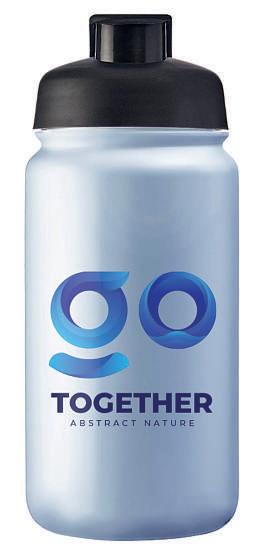
The Loop is made in theUKfrom100% postconsumer waste. The result is abottle whichis food grade-assured, BPAfreeand dishwasher safe. It’sfully customisable and presented in recyclable packaging. To put thecherry on top, it’s produced using renewable energy from First Editions’zerowasteplant.
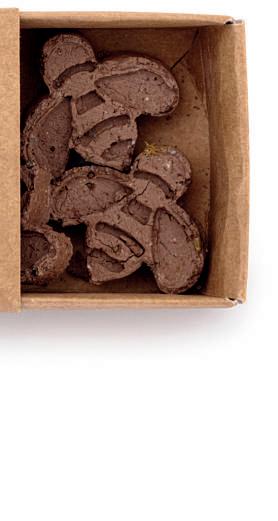
MarkAlderson, managing director of First Editions, said: “Withbusinesses increasingly demanding trust and traceabilityfromtheir suppliers, we place sustainabilitycentrestage and offer completetransparencythroughout our supply chain.”
He added: “Our focus on energy efficiency, renewable energy supply and a‘zero waste’ production process is helping us to mitigateour environmental impact and reduce our carbon footprint. Business success should not come at acost to theplanet.”
The Loop will launchthis summer with an all-electric air-conditioning system (run by solar) inconjunction withanair source heat pump
There’salways moretobedone, Rutland admits. The companyhopes to develop acradle to cradle lifecycle this year,with thepotential tosend back products to be recycled.
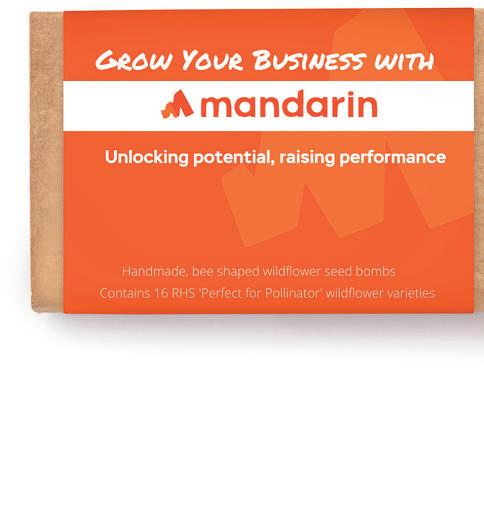
This comes withits challenges including accreditation forplastic and being audited fornet zero
Along this journey to greater sustainability, it would have been helpful to knowhow end users want suppliers to be more sustainable, but thejourney is worth it, he says.
“We’re still learning from thejourney but one thing we would sharenow is to just do it. Being moresustainable is not just agreat business driverbut in manyareas it’salready savedusbothtime and cost.”
IT’SADIFFERENTIATOR
In an effort to improveits commitment to sustainability, Everything Seedshas focused on its materials, says sales director Toby Burge.
“Wesource our materials from local suppliers to reduce our carbon footprint and use biodegradable and plant-based inks wherever possible. However, not all of our products currently contain theseinks, andweare constantly exploring new ways to improve our products and reduce our environmental impact.”

The companyisinthe process of becoming aBCorp, whichmeans it is held to rigorous standards of social and environmental performance, accountability, and transparency.
It is committed to reducing reliance on non-renewable energy sources and working towards using renewable energy to power its warehouse, as well as looking forwaysto improve processes and reduce waste.
Sustainable materials aremoreexpensive than theiralternativesbut thecompany believes it is worthittoalign its values with its products.
The upside is that acommitment to sustainabilityhas been beneficial to the business.
“Weare able to differentiateourselves in acrowded marketand appeal to customers who arelooking forproducts that align withtheir values,” says Burge, who urges businesses to stay committedtotheir values.

“It is not alwayseasy or convenient, but it is essential to stay true to what you believeinand to keep pushing yourself to do better.”
Thinking Smarter
Garment producer Snuggle has reduced single use plastics forshippingand recycles andreuses cardboardboxes
It recently upgraded its direct to garment printers to aplatformwhich carbon offsets manufacturing and shipping. Snuggle also encourages customers to use print on demand whichisamoresustainable, environmentally friendly process by only producing what is ordered. This helps to reduce carbon emissions as well as excess stockand waste.
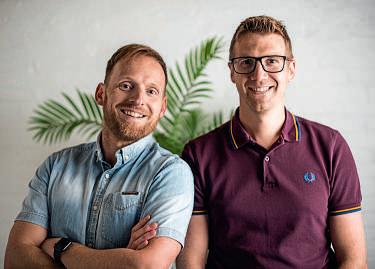
The learning curve is steep admits director Shabbir Maimoon (above left) who says that sustainabilityadds up to alot of investment.
“Improvingefficiencyand workingon sustainable options has acost increase attached to it and getting customers to understand and appreciatehow those changes areimprovingthingscan sometimes be achallenge,” he says.










